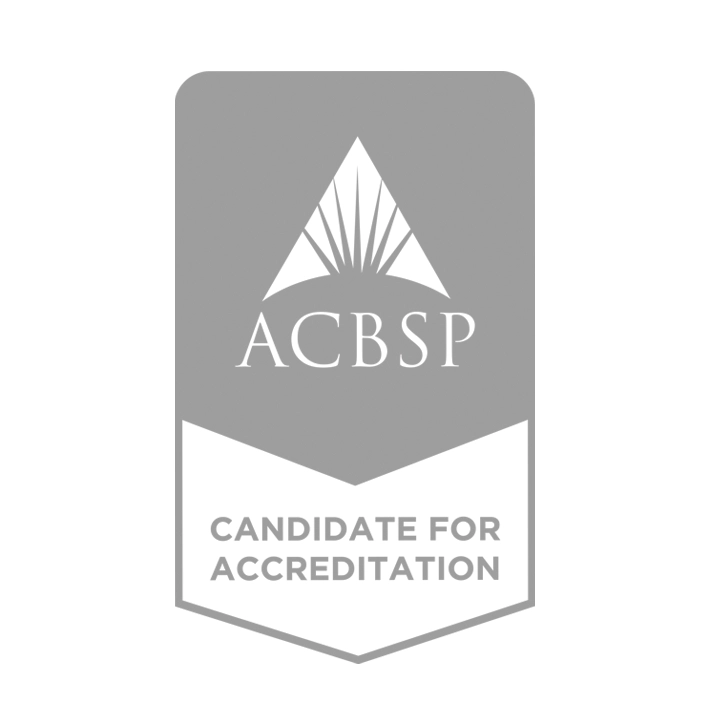

Facilities & Property Management
CIP Code: 46.0401
Overview
Transform your career with our Facilities and Property Management program! Master property administration, project management, and facility operations, and prepare for exciting opportunities across diverse industries.
In this multi-disciplined program, students in the Lambton College Facilities and Property Management, Ontario College Graduate Certificate utilize existing related education or experience to learn and apply various skills to help operate, administer and manage facility and property operations.
In this program, students study the skills and knowledge associated with facility and property administration, including land use, property evaluation, financing, site administration and maintenance and owner/management relations. Students develop a foundation of business skills, including communications, accounting, human resources, relationship managing and marketing strategies that apply to today's property facility and management industries.
Sarnia - A Great Place to Study
Immerse yourself in Canadian culture in Sarnia's small community that cares.
Enjoy the beautiful city on the shores of Lake Huron, live affordably, and let us help you succeed in your future aspirations.
Admission Requirements
- A university degree
The admissions process is competitive and meeting the minimum academic requirements does not guarantee admission.
Lambton College reserves the right to alter information including admission requirements and to cancel a program or course at any time; to change the program curriculum as necessary to meet current competencies or changes in the job market; to change the pathways to third-party certification bodies; or to withdraw an offer of admission both prior to and after its acceptance by an applicant or student because of insufficient applications or registrations or over-acceptance of offers of admission. In the event Lambton College exercises such a right, Lambton College's sole liability will be the return of monies paid by the applicant or student to Lambton College.English Language Requirements
Applicants must submit proof of English proficiency through one of the following in-person test methods:
- IELTS Academic: Overall score of 6.0
- TOEFL IBT: Overall score of 70
- PTE Academic: Overall score of 53
- CAEL: Overall score of 60
- CELPIP: CLB 7
- Lambton Institute of English Placement Test: Overall score of 70
- Completion of an English pathway program at a recognized partner school
Meeting the minimum English requirements does not guarantee admission. Students with higher English proficiency scores will receive priority in the admission assessment process. Not all students will qualify for EAP-3106 in place of the required IELTS or TOEFL test scores.
Costs
- Term 1 $9,567.01
- Term 2 $8,776.98
- Term 3 $9,476.98
- Co-op Term $0.00
Total Cost of Program
Tuition fees are estimates and are subject to change each academic year. Fees do not include books (unless specifically noted), supplies or living costs.
Lambton College reserves the right to alter information including admission requirements and to cancel at any time a program or course; to change the location and/or term in which a program or course is offered; to change the program curriculum as necessary to meet current competencies or changes in the job market; to change the pathways third-party certification bodies; or to withdraw an offer of admission both prior to and after its acceptance by an applicant or student because of insufficient applications or registrations or over-acceptance of offers of admission. In the event Lambton College exercises such a right, Lambton College’s sole liability will be the return of monies paid by the applicant or student to Lambton College.
Additional Fees
WIL Project Fees
Students who are not successful in securing a co-op or fail to meet the co-op requirements will need to register in CPL-5559 WIL Project.
There is an additional fee of $2,100 for each student enrolled in the WIL Project course.
Textbooks
The anticipated cost for textbooks in this program is approximately $500 - $700 per term. This amount accounts for both mandatory textbook costs (included in tuition fees) as well as textbook fees not included in your tuition fee amount.
Important Dates, Deadline & Late Fees
For additional information on registration dates, deadlines and late fees please refer to Registration Dates and Deadlines.
Student Fees
A student services fee is included in your tuition.
Health Insurance Coverage
Emergency medical insurance is mandatory for all international students at Lambton College. This includes students who are full-time and part-time and who are on a co-op. This insurance is provided by GuardMe - a third party insurance provider.
See Insurance Costs & DetailsTechnology Requirements
In order to keep pace with the requirements of each and every course in your program, Lambton College requires that each student have access to a laptop while studying at our college.
Accreditation Council for Business Schools & Programs (ACBSP)
This program has achieved ACBSP Candidacy status which means that this program aligns with global business standards and prepares you for success in your career.
ACBSP Candidacy signifies our commitment to high quality, industry relevant education, ensuring you gain not just knowledge but a competitive edge in the business world.

Courses
Managerial Accounting
The managerial accounting course provides students with skills to become highly effective in environments where quick decisions are required. Students learn to use financial information to make quick strategic decisions including how to use data to evaluate the effectiveness of current operations. Learning to maximize the profitability of operations, students interpret financial statements and supporting financial data that drive decision making. Topics covered in this course include cost management, analysis of financial performance, application of pricing strategies, and budgetary planning and control for a business enterprise.
Computer Applications
In today's management and administration workplace, having strong computer skills is essential. This course provides students with resources and guidance to develop skills in Microsoft Office applications, focusing on three key areas: Word, Excel, and PowerPoint. While learning about these programs, students develop skills in time management, accountability, and their ability to follow direction.
Introduction to Canadian Culture
By 2032, new immigrants will account for up to 80% of Canada's population growth, and one in four Canadians will have been born in another country (Business Development Centre, 2022). Developing personal and professional competencies is important for long-term success as citizens and employees in Canadian workplace environments. Students in this course engage in a series of activities that deepen their knowledge of Canadian culture. Topics such as geography, history and Indigenous perspectives are studied. Furthermore, students develop their soft skills by focusing on effective leadership skills, team interaction, management techniques and interpersonal skill development. Students also explore the meaning of a diverse work place environment, build a strategy for personal growth, and develop their written and oral communication skills.
Human Resource Management
Effective Human Resources Management (HRM) is critical to the success of organizations today. This course will provide an overview of the key concepts of HR management and will include some history and theory of the HR function and important terminology. It will introduce students to the core competencies of effective HR practitioners and allow for self-assessment against these competencies. We will be discussing core HR practice areas such as Strategic Planning, HR Planning, HR Administration, Talent Management, Training Learning and Development, Performance Assessment, Total Rewards (including Compensation and Benefits) Employee and Labour Relations and Health and Safety in the workplace. In addition, the course looks at the legal environment for effective HR management, and the role of HRM in mergers and acquisitions and organizational change management.
Occupational Health and Safety
This course introduces participants to the broad and ever-changing field of occupational health and safety, an inherently technical subject area. The multiple dimensions of the various issues--technical, legislative, political, and personal--are a required part of the training for a professional in this field or for someone who is involved with this kind of operation. Major topic areas include the Occupational Health and Safety Act, WCB, WHMIS, transportation of dangerous goods, accident prevention and investigation, physical and biological agents, and the management of Occupational Health and Safety programs
Marketing Fundamentals
This introductory marketing course provides students with a comprehensive overview of the principles, concepts, and practices of marketing. Marketing plays a critical role in today's business landscape, helping organizations effectively connect with their target audiences, create value, and drive business success. This course explores the fundamental theories and techniques of marketing while also emphasizing the role of sustainability in creating long-term value for businesses, society, and the environment. Students are introduced to various marketing components, including consumer and business buying behaviour, customer segmentation, marketing research, product development, pricing, distribution, and integrated marketing communications.
Job Search and Success
This course provides student with skills and knowledge to help support their career search and succeed in the workplace. Students align their personal skill set and goals to guide them on their career paths. They will learn how to effectively conduct a job search, build a professional and well-tailored resume and cover letter, and develop and practice interview techniques. Students will also develop their personal brand to help support effective career networking and aid in their job search. Teamwork and collaboration in the workplace are also discussed. Self-reflection is used to inspire insight and support their professional career journey.
Business Fundamentals
This course introduces the student to the modern world of business. It examines the significance and composition of Canadian business, discusses current factors and trends in the business environment, explores how businesses are organized and managed, and provides a brief discussion on the topics of entrepreneurship and business etiquette.
Leadership in Change Management
One of the few constants in today's competitive business environment is change. Change leaders must have knowledge of what drives successful change, what challenges successful change, the options available, the ethical issues associated with change, and understand organizational theory and behaviour and its impact. Leaders are facing change as it relates to sustainability, climate change and the implications for business in the ESG realm. The environment, social-justice, diversity, and inclusion are all considerations and present organizations with both opportunities and challenges as we look with urgency to our collective futures. Effective leaders must identify the correct approach to leading transition within an organization, utilize skills required to lead in chaotic and fast-paced environments, optimize organizational structures, analyze, and assess change effectiveness, and ready their organizations to thrive. Through case study, readings, teamwork and class discussion, this course explores these knowledge areas and provides opportunity to practice and develop leadership skills relevant for successful change management.
Six Sigma Process Improvement and Techniques
This course provides students an in-depth understanding of Six Sigma Improvement technique and clear sense of what is required to define high impact improvement projects for the enterprises. Students gain knowledge of how to establish Six Sigma measurements and complete Six Sigma projects using the systematic Define, Measure, Analyze, Improve and Control (DMAIC) methodology.
Social Media Marketing
This course explores online marketing tools and tactics, such as social media, email, digital advertising and content marketing, that businesses can use to build a profitable relationship with their customers. Students engage in simulated social media, email and digital advertising campaigns to gain a better understanding of how to use these tools in their marketing efforts. Along with learning about digital and social media marketing, students learn general principles of marketing that are key for every business, regardless of industry or size: identifying who your customers are; understanding what needs they have that you are uniquely able to serve; creating a brand voice that speaks to them; identifying who your competitors are; deciding how to differentiate your offering from theirs; and creating a plan for engaging customers across social media and digital advertising platforms.
Financial Analysis and Budgeting
This course is an introduction to the essentials of financial management with a view for wealth maximization of a business enterprise. Topics covered in this course include the following: analysis of financial performance, cost-volume-profit analysis, financing alternatives and costs, management of working capital, budgeting, and capital investment decisions.
Energy Efficiencies in Canadian Constructions
This course will offer students an introduction to energy efficient building techniques, state of the art energy conserving systems and sustainable building approaches. Specific subject to be covered will include the basics of Heat Transfer, Building Envelope, Insulation Techniques, and New Technologies in electrical and heat generation.
Electrical and Plumbing Techniques for Renovations
This course will introduce the learner to various plumbing and electrical issues that renovators encounter on a residential construction site. This course will provide the learner with knowledge of how residential and municipal plumbing and electrical systems operate, as well as understanding energy efficiencies that can be gained using environmentally friendly techniques and products.
Electrical and Plumbing Techniques for Renovations
This course will introduce the learner to various plumbing and electrical issues that renovators encounter on a residential construction site. This course will provide the learner with knowledge of how residential and municipal plumbing and electrical systems operate, as well as understanding energy efficiencies that can be gained using environmentally friendly techniques and products.
Tenancy Law in Canada
This course intends to introduce the student to the law of residential tenancies governing landlords and tenants in Ontario. The course is designed to give the student a firm understanding of the basic legal principles articulated in the legislation. It will also focus on the practice and procedures of the Landlord and Tenant Board. The student will gain practical hands-on experience ranging from filing and serving legal documents to advocacy skills.
Building Maintenance for Property Managers
This course aims to provide an understanding of maintenance management services for those involved in the property management sector or a related field. It will give a general overview of management systems, such as the principles of residential construction, building science(s), specification writing, management's responsibility for managing life safety systems, contract management, and the impact of various legislative requirements.
Property and Building Administration
Property Managers must develop analytical and behavioural skills related to the supervision of employees. In addition, they must also interact with tenants, owners, contractors, and the general public. Topics will include decision-making, leadership, delegation, team building, motivation, performance coaching, evaluation, discipline, personnel procedures, recruitment, public relations, client/tenant services, owner/board liaison, and business ethics.
Project Management
This course will provide the student with an overview of the structured processes and knowledge areas of project management within the context of organizations. It will contrast the differences between operational management and project management. It will provide the student with numerous tools and techniques used to initiate, plan, execute, monitor and control, and close a project. Students learn the vocabulary, definitions, principles and concepts of project management and working in a project team.
Sustainable Infrastructure: A Canadian Context
This course introduces various aspects and approaches of sustainable infrastructure management from a Canadian perspective. It will outline the available and emerging technologies and systems, legislative frameworks, policy developments and funding and financing mechanisms involved in the decision-making process. The material will have a specific focus on sustainability related to infrastructure and buildings in municipalities, rural areas, and remote communities. Elements presented will include transportation networks, energy efficiency and renewable energy technologies in commercial, institutional, industrial, residential, and other sectors. How sustainable infrastructure impacts the economic, environmental, and social aspects within society will also be studied.
Co-op Work Term
Co-operative education provides students with the opportunity to apply classroom learning to the workplace, undertake career sampling and gain valuable work experience that may assist students in leveraging employment after graduation.
WIL Project
Work Integrated Learning (WIL) Project is aimed at enriching students by connecting different program areas of study, cutting across subject-matter lines, and emphasizing unifying concepts. The focus of the WIL Project is to make connections between study and industry by engaging students in relevant and meaningful activities that are connected to and practiced within the professional workplace. WIL Project allows students to enhance and strengthen their employability prospects post-graduation by fine tuning skills and knowledge and meeting the expectations of today's employers. Students are required to attend the scheduled shifts in the WIL office, reporting to the WIL Supervisor. Weekly real-world challenges are presented in the WIL office, designed by industry professionals. In addition to the weekly assigned deliverables, students are also offered professional development sessions, and exposed to industry guest speakers, enhancing their opportunity to develop their professional network.
Co-op Eligibility & WIL Project Fee
In order to be eligible to secure an approved full-time co-op work term (CPL-1049), students must have a GPA of 2.8 or greater and complete all the co-op eligibility requirements. Failing to do so will require students to enroll in CPL-5559 WIL Project at an additional cost.
Contact
Centre for Global Engagement
LAMBTON COLLEGE SARNIA
1457 London Road
Sarnia ON N7S 6K4
After Graduation
Employment Opportunities

Discover endless career opportunities with our Facilities and Property Management program! Whether you're aiming to become a property administrator, leasing coordinator, housing project manager, or facility operations manager, our specialized courses provide the skills and knowledge you need to excel. From managing bustling recreation facilities to overseeing property rentals, this program opens doors to a variety of rewarding careers.
Looking for Support After Graduation?
The International Graduate Services & Support Centre (GSSC) is a place dedicated to assisting International alumni as they seek employment and settle into Canadian life following graduation.
Post-Graduate Employment
International students who successfully complete their programs of study at Lambton College may be eligible to apply for a Post-Graduation Work Permit (PGWP) Program. This program allows students to gain valuable Canadian work experience.
A work permit under the PGWP may be issued for the length of the study program, up to a maximum of three years. A post-graduation work permit cannot be valid for longer than the student's study program, and the study program must be a minimum of eight months in length. The length and approval of the PGWP is determined solely by Immigration, Refugees and Citizenship Canada (IRCC).
Students must meet the eligibility requirements to apply for a post-graduation work permit.
Immigration Regulations & Changes
Immigration regulations are legislated by the Federal Government of Canada and are subject to change at any time without notice. Students are responsible for ensuring that they are in compliance with all Immigration, Refugees and Citizenship Canada regulations at all times during their studies and while in Canada. Lambton College staff are not authorized to provide advice or guidance on immigration-related matters. Prospective applicants and current students should consult the Immigration, Refugees and Citizenship Canada website or call the IRCC Call Centre at 1-888-242-2100 to answer or clarify any immigration-related questions or information.
Co-op
About Co-op
Students in this program have the opportunity to gain valuable work experience by applying classroom learning during co-op experiences.
Learn more about co-op terms and the roles and responsibilities of students and co-op advisors.
More Information
Student Responsibilities
- Course and program delivery schedules are proposed and subject to change for each intake.
- Students are required to bring their own laptop with wireless capability.
- Students are advised to bring an official copy of their most recent police clearance, driver's license, and vaccination record from their home country.

Accreditation Council for Business Schools & Programs (ACBSP)
This program has achieved ACBSP Candidacy status which means that this program aligns with global business standards and prepares you for success in your career.
ACBSP Candidacy signifies our commitment to high quality, industry relevant education, ensuring you gain not just knowledge but a competitive edge in the business world.

Technology Requirements
It is recommended that students purchase a laptop with a Windows operating system.
Internet Speed Requirements
For best performance for students learning remotely, an internet connection with a minimum of 40 Mbps download and 10 Mbps upload speed is recommended in order to effectively use video conferencing and remote lecture delivery software as well as, other online resources remotely. Due to the large area over which students may be dispersed, we are unable to recommend a specific provider, so you will need to inquire around your area to find one that best suits your needs.
Minimum Laptop Requirements
In order to access the internet and virtually-delivered software and courseware, student laptops should include the following at a minimum. By meeting the following specifications, students will be equipped to access software and courseware on their laptop through the internet:
- Intel i5 8th Gen Processor or equivalent
- 16 GB of RAM (with a minimum of 8 GB)
- 100 GB HDD or more
- HD Graphics
- Webcam with a microphone
- Wireless 802.11n/ac 5ghz capable
- Windows Operating System (Windows 11)
Please note that Chromebooks and MacBooks may not support all software required for your program; students should verify compatibility with their professors.
Software
To ensure students are getting the most our of their classroom experience, some software will be required.
Lambton College has made this software easily accessible online. Students can leverage our Microsoft Office 365 software packages and services. In addition, much of the software you require for your courses will be available on demand for use on any device - on or off campus.